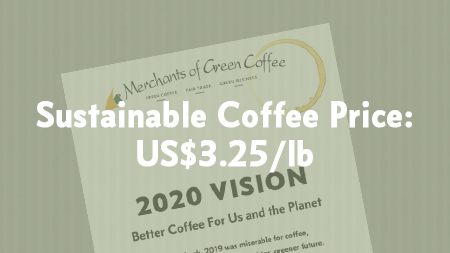
There’s no debating or denying it, 2020 will be a decisive decade. Our world offers an abundance of information, but our ecological time clock is running out …
Merchants of Green Coffee strives to be a Triple Bottom Line company. This decision was made at the time of our company’s founding to coincide with achieving our mission, “To deliver the best-tasting coffee experience to discerning consumers through a supply chain with integrity and a unique commitment to quality.”
The core philosophy of TBL and its adoption by companies and organizations is an open invitation to address the shortcomings in the Generally Accepted Accounting Principals (GAAP), the International Accounting Standards (IAS) and the General Agreement on Tariffs and Trade (GATT). TBL is an alternative to current international accounting standards; And it references the addition of the third bottom line (ecological), which Merchants supports wholeheartedly.
In practise, TBL accounting is a massive undertaking requiring major partners in support. Today’s climate change crisis is the perfect time to start talking seriously about TBL since it would assist in measuring an investment risk.
In the meantime, since TBL accounting helps achieve a more equitable distribution of supply chains and reduces carbon emissions, Merchants works to build its principals into our operations. Merchants of Green Coffee’s three bottom lines are: Fresh Coffee (ensures profits), Fair Trade (social), Green Business (ecological).
Fresh Coffee: Merchants engages in careful sourcing and selling of the highest quality coffees; green or roasted, which guarantees business profits and return to shareholders (whom are included as stakeholders). A high-quality product, with a healthy sales stream, can afford to take care of the social and environmental costs of the product. (This is essentially what we are are out to do and prove, and which allows for lower-quality products to benefit from the development of their more expensive counterparts).
Fair Trade: Merchants has set and pays a minimum sustainable coffee price US$3.25/lb (2020), based on nearly three decades of sustainable coffee development work. Our flagship coffee program also helps fund healthcare and education in the producing community. At minimum (with coffees we don’t purchase directly) Merchants pays growers the price set by Fair Trade. The cost of not exploiting growers is relatively expensive, evidenced by the fact that the world coffee price has been lower than the cost of production for many years. When a coffee’s profits are shared over a truly equitable supply chain the resources are naturally stretched thinner and one result is that the stakeholders whom have grown accustomed to benefitting from the exploitation of growers, experience a financial “pinch” in the form of reduced or delayed income (which, on the other hand, is what coffee growers are accustomed to and have endured since the beginning of the coffee trade).
Green Business: Merchants are developers and partners of sustainable coffee programs and innovations, including renewable-energy solar dryers and restorative coffee farming. We are active in measuring and reducing our footprint in all areas of the coffee supply chain, including coffee production, packaging, and brewing; And we achieve reductions largely through the following activities: not harming the environment, reducing waste, reducing water and energy use, converting to clean, renewable energy sources, analyzing product life cycles, and carbon farming via reforestation.
In general, one of the major challenges in putting Triple Bottom Line to practise is the measurement (quantifying) of social and ecological effects. This may be the main reason why an official corporate TBL framework is yet to exist. It’s also exactly what Merchants aims to achieve by setting a minimum sustainable coffee price and working to measure and offset our carbon footprint (both quantifiable tools).
Today, the TBL concept enables organizations to evaluate the consequences of their decisions from a longer-term perspective, and its something every organization can transition towards.
Source: Information collected and summarized by Merchants of Green Coffee Inc. from our own corporate documents, in addition to Wikipedia.